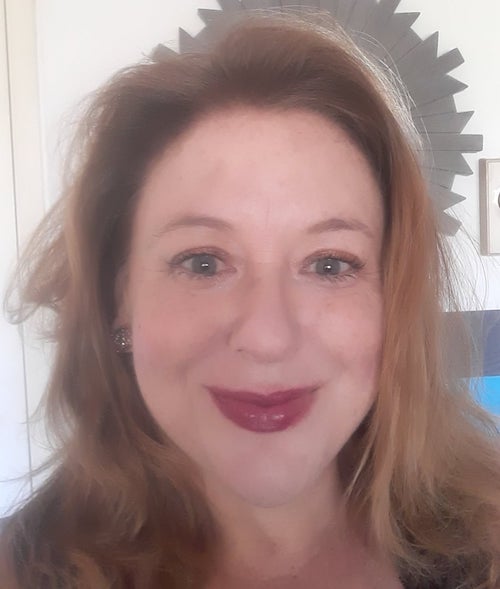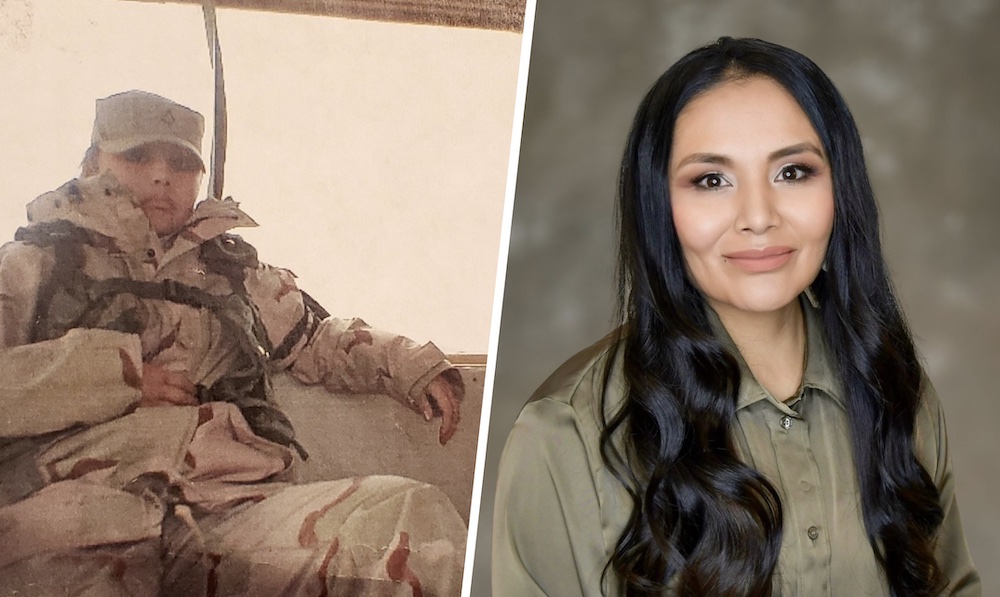
- Details
- By Tamara Ikenberg
- Indigenous Entrepreneurs
A mortar attack in Baghdad ended Rose McFadden’s military career, but launched her path as a Navajo entrepreneur building community through wearable art.
The attack during her second deployment injured her spine, brain, and left her temporarily unable to walk, shattering her body and career plans.
“I try to look back on that girl because it feels like it was somebody else. I just am very thankful that I lived through that,” McFadden told Tribal Business News. “It really shifted the trajectory of my life to what I do now, which is serving out a bigger purpose as a community builder and a business person.”
McFadden, an Army veteran who earned a Purple Heart, found healing through art after being told she would live with permanent disabilities.
The Diné woman, who grew up on Navajo Nation surrounded by artists, pursues her goals of creating beautiful wearable art and uplifting the community through her jewelry brand Isabella Rose Design Co. and a long list of Native-serving endeavors.
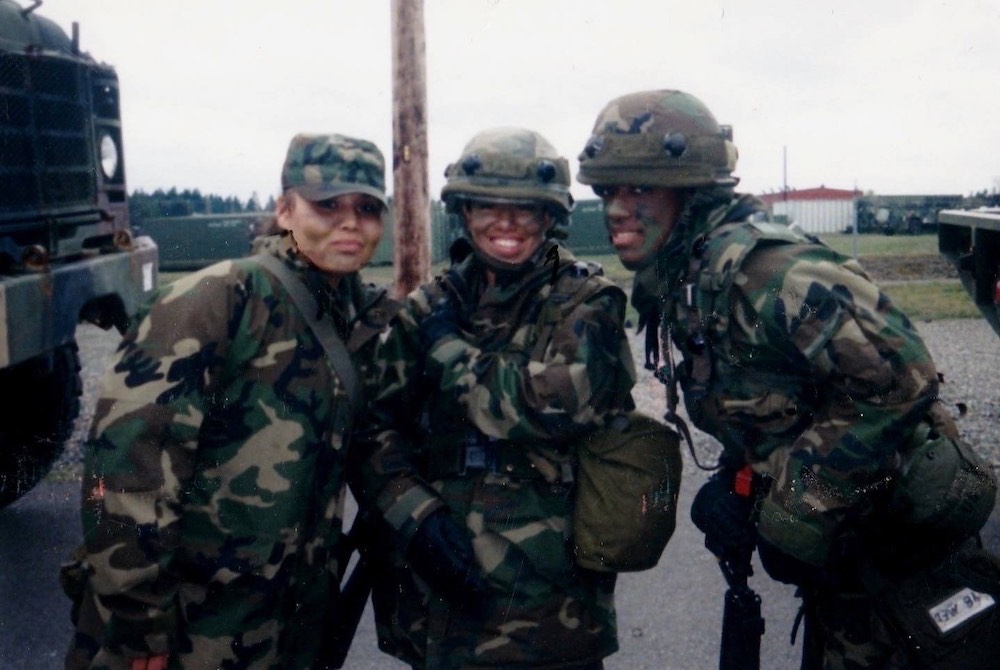 Rose McFadden (left) during a tour of service before an injury ended her military service career. The injury "shifted the trajectory of my life to what I do now," she said, leading to her path as an entrepreneur and community builder. Her husband, Ryan, is a partner in all her business pursuits. McFadden’s summer activities include introducing the first Native dancer at the Global Unity in Dance event in San Diego and presenting at the 2025 National UNITY Conference in San Diego as part of the Native Youth Foundation.
Rose McFadden (left) during a tour of service before an injury ended her military service career. The injury "shifted the trajectory of my life to what I do now," she said, leading to her path as an entrepreneur and community builder. Her husband, Ryan, is a partner in all her business pursuits. McFadden’s summer activities include introducing the first Native dancer at the Global Unity in Dance event in San Diego and presenting at the 2025 National UNITY Conference in San Diego as part of the Native Youth Foundation.
“I’m teaching, mentoring, and being a positive person for my peers in business, Native American women, veterans and Native American youth,” McFadden said.
BUILDING A FOUNDATION
When McFadden was honorably discharged from the military, she managed the difficult transition back to civilian life by focusing on education and building skills that would later prove essential for entrepreneurship
“When you’re out of the military, you don't really belong anywhere. You don't belong at home. You don't belong in your community. You don't really belong at school,” McFadden said. “You're the oldest one in the room. Everyone's young. You can't have a relationship with these little kids.“
Using the GI Bill, she enrolled at Yavapi College, a two-year institution in Prescott, Arizona, where she studied. When she wasn’t in class or studying, she worked in a series of part-time jobs.
“I did everything. I worked at Lowe's, with AmeriCorps, at an art gallery, at the student union ... I did anything,” she said. “I tried to put myself in a position of interacting with people because at that point, that wasn't my strong suit. I was very introverted and I didn't want to become depressed.”
After graduating from Yavapai, McFadden enrolled at Northern Arizona University where she majored in business and minored in psychology.
Her designing career was still years away. McFadden entered the health care field and earned her MBA with an emphasis in healthcare management in 2014.
While completing her master's program, McFadden worked full time at a mental and behavioral health care center providing inpatient and outpatient services in Arizona.
She married in 2014 and moved to Northern California with her husband, then to San Diego after they launched PeterHunt, a national recruiting firm where McFadden serves as CEO. The company focuses on giving back to the community, with a portion of fees supporting selected nonprofits.
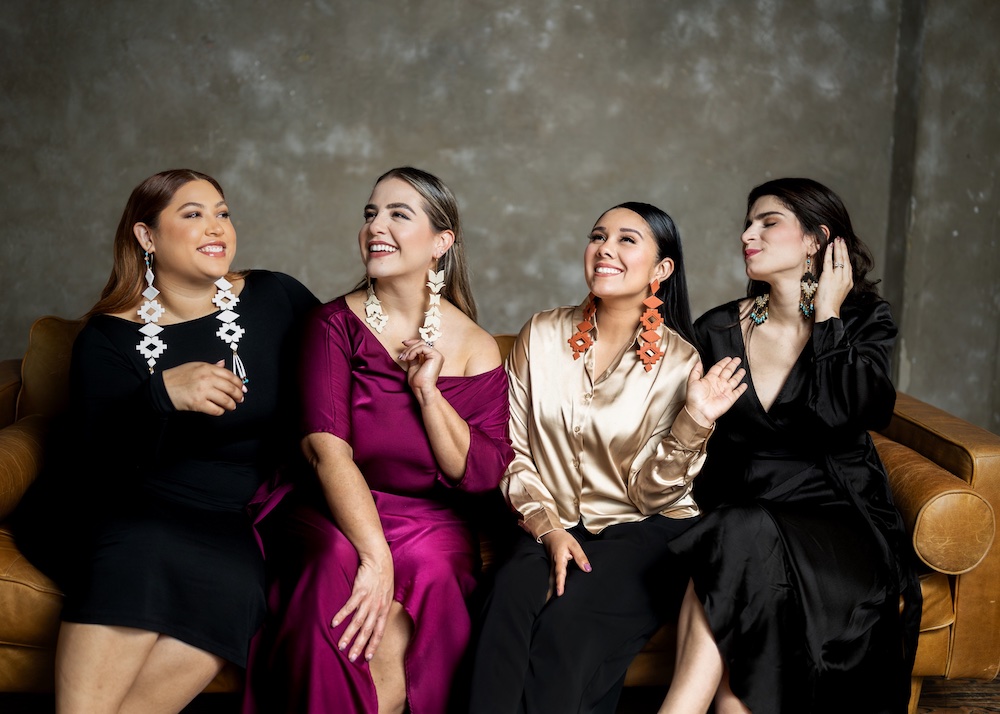 An assortment of jewelry from Isabella Rose Designs, owned by Navajo entrepreneur Rose McFadden. (Photo: Brenda Lozano)
An assortment of jewelry from Isabella Rose Designs, owned by Navajo entrepreneur Rose McFadden. (Photo: Brenda Lozano)
FROM SIDE HUSTLE TO BUSINESS
Around 2019, McFadden, who had been creating jewelry, woodwork and other items on the side for years, decided to scale up to a wearable art business.
“We were selling big pieces and everything just grew rapidly,” McFadden said.
“Some businesses are going to work and they're going to pair with your passion. For me, this is art, and I was able to have this corner of art and turn it into a business. My professional skill set in business met with my passion to create Isabella Rose Design Company.”
The company is named after McFadden's daughter and intended as a source of power and inspiration.
“I wanted to have something for her, and show her that you could overcome and be fearless and strong and have a purpose, even when you feel like you don't have one,” she said. “And I want her to get up when she falls and go after it again and again and again — that's my business model.”
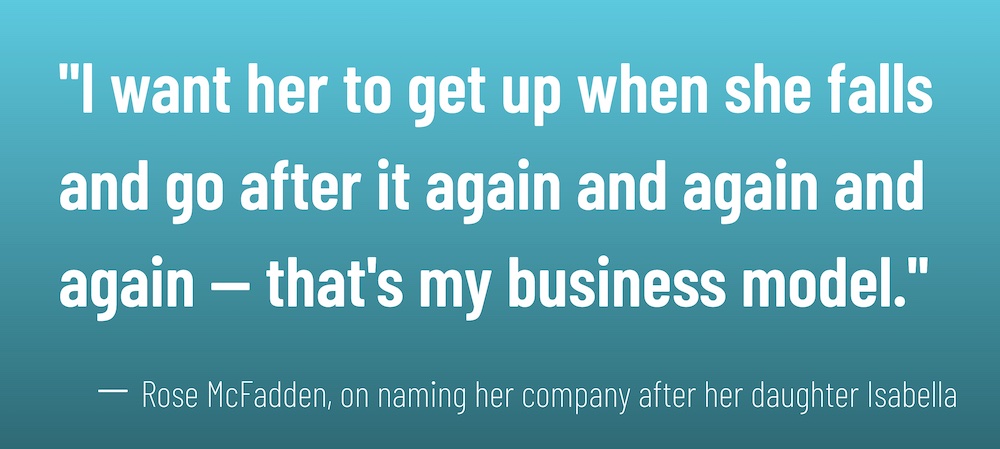
‘BE YOUR OWN EVERYTHING’
Before McFadden could afford to hire team members, she bootstrapped the company by handling every business function herself.
“You've got to learn to be your own everything. When I started out, I was a photographer, videographer, content creator, marketing person, graphic designer. I designed everything myself. I coordinated photo shoots, hired models.”
One of McFadden's most valuable networking and learning sources is her position as a designer and instructor with Polymer Clay TV, an international teaching platform that instructs artists on the use of polymer clay, a lightweight material McFadden uses as the base for her jewelry.
“I want to create big extravagant pieces, but have them not weigh down your ears,” McFadden said. “Pieces can get heavy when you start adding silver and stones.”
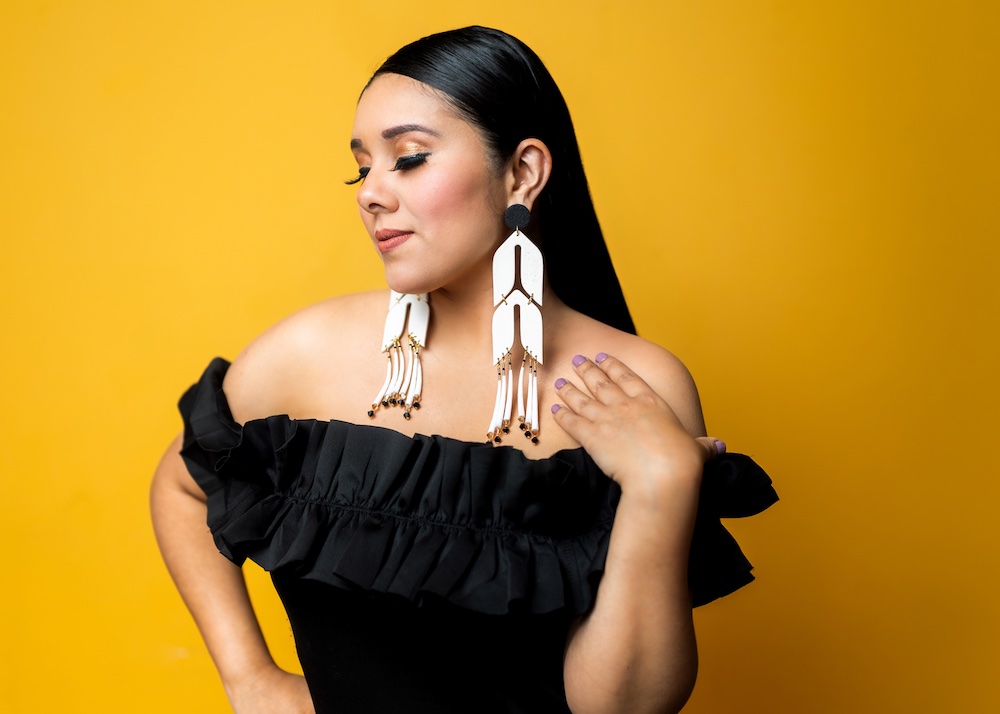 A model showcases large statement earrings that exemplify the "big extravagant pieces" aesthetic that McFadden strives for in her Isabella Rose Design Co. jewelry, designed to make a bold visual impact without weighing down the wearer. (Photo: Brenda Lozano)
A model showcases large statement earrings that exemplify the "big extravagant pieces" aesthetic that McFadden strives for in her Isabella Rose Design Co. jewelry, designed to make a bold visual impact without weighing down the wearer. (Photo: Brenda Lozano)
VALUES-DRIVEN SOURCING
McFadden built her supply chain around supporting other Native American small businesses, even when it costs more.
“I source everything in the United States. All our turquoise and precious stones come from the mines in Kingman. A lot of our other elements, like shells, come from the Pacific Northwest. You make friends with the different small business owners,” she said. “I know it all costs more, but it's more important to me to support Native American small business owners like myself.”
McFadden's jewelry can be purchased through her website and in stores including Native Star, a Native-owned store in downtown San Diego.
CREATIVE COLLABS
McFadden has a natural ability for finding the right partners in wearable art.
Collection collaborations with other designers are integral to Isabella Rose Designs and reflect McFadden's instinct for community building and uplifting the Indigenous fashion community.
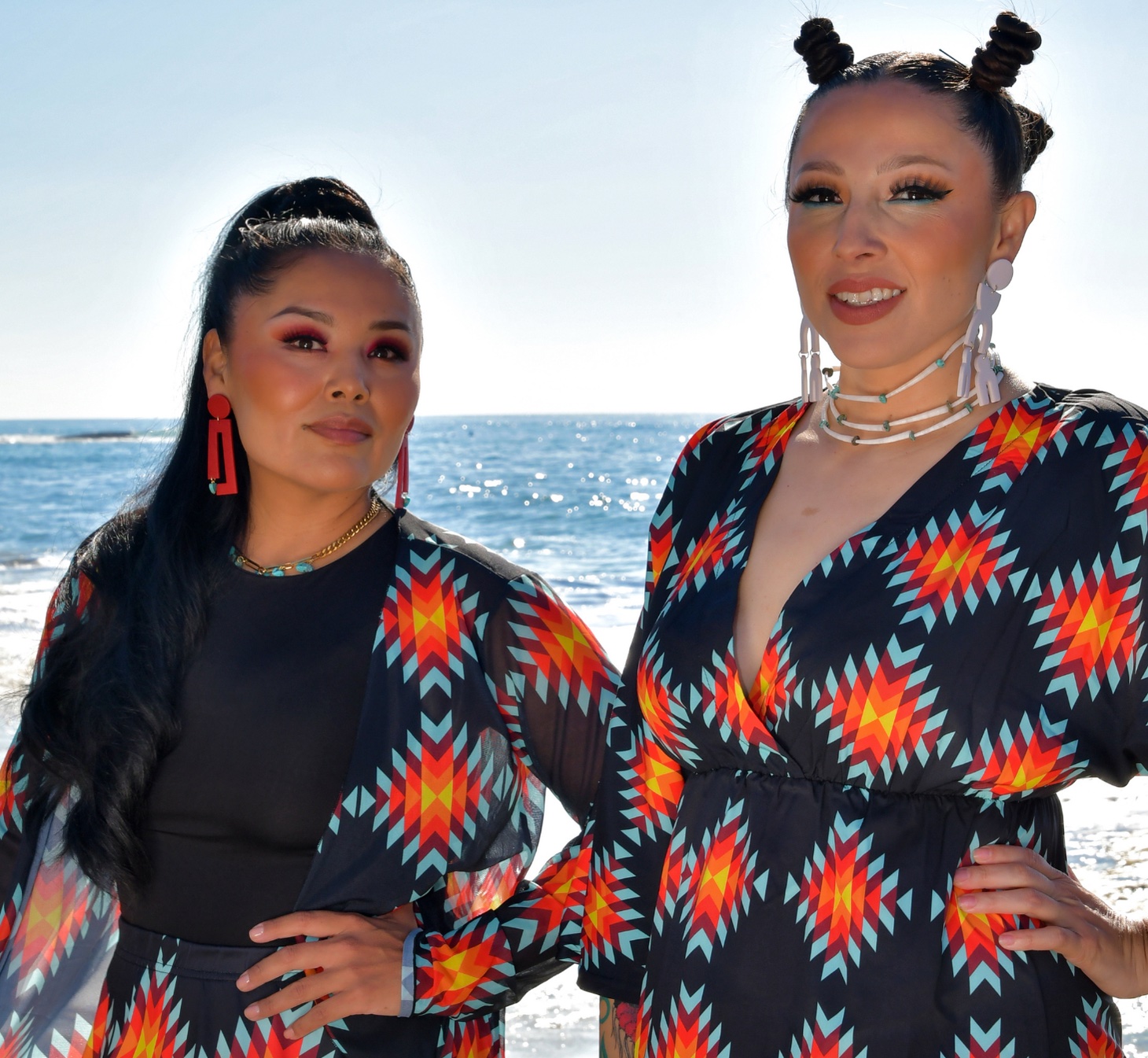 Rose McFadden (left) and Rebekah Jarvey wear matching geometric designs that reflect their creative collaboration. The Navajo entrepreneur and Chippewa/Cree designer's friendship led to their successful Iskah collection, blending traditional values from different tribes. (Photo: James Skeet, 82visuals)Her recent Iskah collection, created to complement Chippewa/Cree designer Rebekah Jarvey's NEO and Survival to Fashion collections, developed from friendship. Jarvey and McFadden were both featured as breakout designers in Native Max Magazine's 2023 anniversary issue.
Rose McFadden (left) and Rebekah Jarvey wear matching geometric designs that reflect their creative collaboration. The Navajo entrepreneur and Chippewa/Cree designer's friendship led to their successful Iskah collection, blending traditional values from different tribes. (Photo: James Skeet, 82visuals)Her recent Iskah collection, created to complement Chippewa/Cree designer Rebekah Jarvey's NEO and Survival to Fashion collections, developed from friendship. Jarvey and McFadden were both featured as breakout designers in Native Max Magazine's 2023 anniversary issue.
They first connected through social media, then met and bonded at a Native Youth Foundation event in San Diego in July 2024. They decided to combine their talents, and Iskah was released last fall.
“The collaboration came organically. We combined our creative ideas, traditional values and different things from different parts of the country and different tribes,” McFadden said. “Since then, we've been encouraging each other, and we're like sisters. We're more than business partners. When things happen like that, it's genuine.”
BEYOND BUSINESS
McFadden's entrepreneurial activities extend beyond jewelry. In addition to running PeterHunt and Isabella Rose Design Co., she co-founded and serves as executive director of We Luv San Diego, a nonprofit focused on homelessness, foster care prevention, food distribution, and serving families in need.
The approach reflects her integrated philosophy of using business as a platform for community impact—whether through her recruiting firm's charitable giving, her nonprofit work, or Isabella Rose's collaborations with other Indigenous designers.
McFadden may not have planned the entrepreneurial path she built after leaving the military, but she's leveraging every experience to grow her business.
“I've always been moving in life, growing and adapting to new surroundings, creating a new path to our success as a family and business,” McFadden said.
